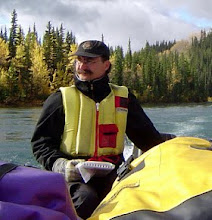After two weeks in Christchurch we headed south to the Mackenzie high country for a week at Braemar Station. The sloping Canterbury Plains gradually get drier and barren as we gain altitude. Before us we see the outliers of the Southern Alps and soon we will drop over the edge of the ridge down to Lake Pūkaki.
While pretty along the road verge the introduced lupins are a threat to several bird species nesting in the unique braided gravel river bed ecology of the South Island.
Braemar Station overlooking Lake Pūkaki is an oasis of trees, gardens and hospitality. Julia and Hamish Mackenzie manage a huge block of land on which they run sheep and deer, offer a unique New Zealand golf experience and welcome visitors. We settle into modernized Pine Cottage, one of the original dwellings on the station relocated to a ridge top granting a stunning view of the lake and mountains. On our arrival we enjoyed a calm, sunny evening. We later came to realize this was a meteorological anomaly.
Erin and Hector hit the road. Aoraki/Mount Cook, New Zealand's tallest mountain and a sacred site for the Ngāi Tahu (Maouri) iwi, rises above the Tasman valley at the head of the lake. Aoraki and his three brothers, sons of Sky Father, took their waka (canoe) down from heaven to visit their step-mother. On attempting to return to heaven however, the waka tipped on its side and was turned into the South Island. The brothers were turned to stone, Aoraki becoming the highest mountain, the brothers making up the rest of the Southern Alps.
Stephen fished both ends of the lake with equal success. Although he saw fish there were more interesting things about and we remained on a fish-free diet. None of this however impaired his pleasure in standing beside the water and enjoying the day. In contrast my attempts to hike in the braided stream environment nearby resulted in a knee deep immersion in a quakey sandbar so it was nearly humans 0, fish 1.
The end of the road takes you to Mount Cook Station at the confluence of the Jollie and Tasman rivers. The station, originally established in 1864, remains in the hands of the founding family, epitomizes the dramatic diversity of New Zealand stations. In addition to deer and sheep the station has a large pine tree plantation.
Sheep at eventide in the Shearer's Paddock, Braemar Station. Especially placid in the evening, during the day sheep and lambs scamper off over the horizon as soon as they see you coming. And that's why the musterers have well trained dogs helping them manage the herd.
During our tramp up the rain swollen Jollie River we witnessed logging operations and got to meet Sam and Chad, and friendly dog (who doesn't run a chain saw), during their lunch break. We sat and traded stories of hunting tahr here and moose back home. Chad's looking forward to a Yukon visit in October to go hunting.
Glaciated mountains and lakes create their own weather. We had several stunning storms during our stay. The wind rose, clouds thickened overhead and staggering bolts of lightning split the sky, blinding us. Seconds later we'd hear the thunder rolling up the valley. Like an operatic production of Ghost Riders, the cascading rumbles passing overhead shook our small cabin and only gradually dissipated their energy into the glacial valleys surrounding Aoraki. The Sky Father sending messages to his earth bound sons?
In the morning the skies were clear and bright and a double complete rainbow bridged the lake. A cleansing wind still swept around our cottage. Struggling against the steady gale - I had to lean into the wind and then let my leg swing forward - I made my way up the hill in Shearer's paddock. On top, with its splendid view of Aoraki, I found I could, rather I had to, lean on the wind simply to stay in place. It was an extraordinary experience. Later in the week the park interpretor at Aoraki told us the Met. station wind recorder that day measured winds up to 172 km/hr before it broke.
Andrew admires the rainbow from our front porch. Braemar Station gave our family a fascinating and engaging experience of high country station life. The atmosphere is relaxed and casual, the hosts friendly and helpful, we enjoyed the immersion in the rural life of New Zealand.




.JPG)
.JPG)
.JPG)

.JPG)